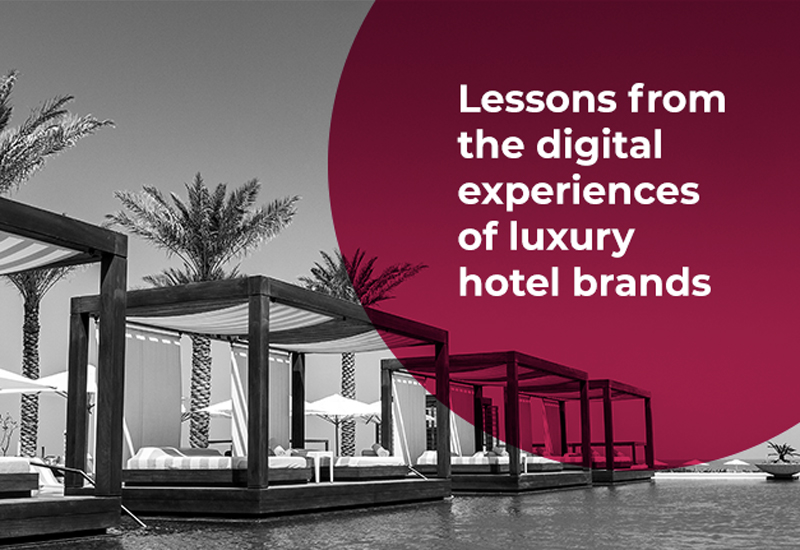A study of seven of the world’s top luxury hotel brands has identified major gaps in their digital experiences.
Angus Carbarns, digital strategist at digital transformation agency Equator, shares the insight at a time in the luxury travel industry when online travel agent’s commission has risen to, on average, 15%.
His report, ‘Do luxury hotel websites deliver luxury experiences?’ says with so much revenue to be lost to OTAs, hotels are doing themselves no favours by having websites that don’t reflect the premium experience their brands are known for.

| Advertisement |
Angus said: “A look at global search trends for the world’s top luxury hotels shows a tangible decline in brand search terms, demonstrating brand loyalty may not be as strong as it once was. Digital differentiation is crucial to stand out and attract direct bookings.”
The report analyses the websites of The Four Seasons, InterContinental, JW Marriott, Luxury Collection, Park Hyatt, Ritz-Carlton and Sofitel, focusing on personalisation, content and the booking process. Equator leaves readers with five key considerations for future proof luxury hotel websites.
The report found that none of the websites reviewed used AI powered chatbots on site to personalise users’ digital journey, despite their rise in popularity over recent years. The agency believes this is a missed opportunity.
Angus said: “The disruptive power of AI and chatbots, doesn’t appear to have been truly recognised in the luxury travel industry. This technology can progress the booking experience from arduous to elegant. The playing field for premium hotel brands to own this space is wide open.”
The hotels’ use of long-form, user-generated and video content was also analysed. Front runners here included InterContinental, thanks to its ‘Fascination’ series which invites visitors to experience what it means to live the ‘InterContinental Life’ through well-crafted videos, articles and blogger collaborations. The Four Seasons approach was also praised, with the site featuring dozens of travel guides using high-quality photography and video.
The importance of authentic content that is effectively integrated with the website is stressed in the report. Marriott’s Traveler content series, though engaging, is described as missing an opportunity by not integrating with Marriot’s booking site, while the Ritz Carlton Magazine is designed only for print with no apparent digital equivalent.
Angus added: “With voice search predicted to account for 50% of web searches by 2020, high-end hotels must always consider their audience when creating content. The in-depth yet conversational style implemented by The Four Seasons and InterContinental will resonate with travellers.”
Consistency and simplicity of the booking process was another pitfall many brands encountered. Only The Four Seasons had an end-to-end booking journey that occurred entirely on its own domain.
Shared booking engines with wider hotel groups are leading to confused user journeys – for example, completing a booking for Ritz Carlton pushes users to the Marriott site. This could lead to confusion and loss of direct bookings.
Sharing his thoughts on The Four Seasons as the leader in the sector, Angus said: “We were impressed by their commitment to meeting and exceeding what luxury travellers want. The brand’s focus on communicating the customer experience through strong content, visual identity and overall user experience helps push the site ahead of the pack. From browsing options to booking a room, they stood out as having the most consistent and lean booking experience of all sites analysed.
“Taking a look at the best-of-the-best demonstrates there’s still a lot of work to do when it comes to digital propositions within the luxury travel industry, however, the opportunities to excel are immense. And with significant revenue to be made by growing direct bookings, these opportunities can’t be put off to be dealt with further down the line. If brands fail to act now, they can be sure someone else will.”





